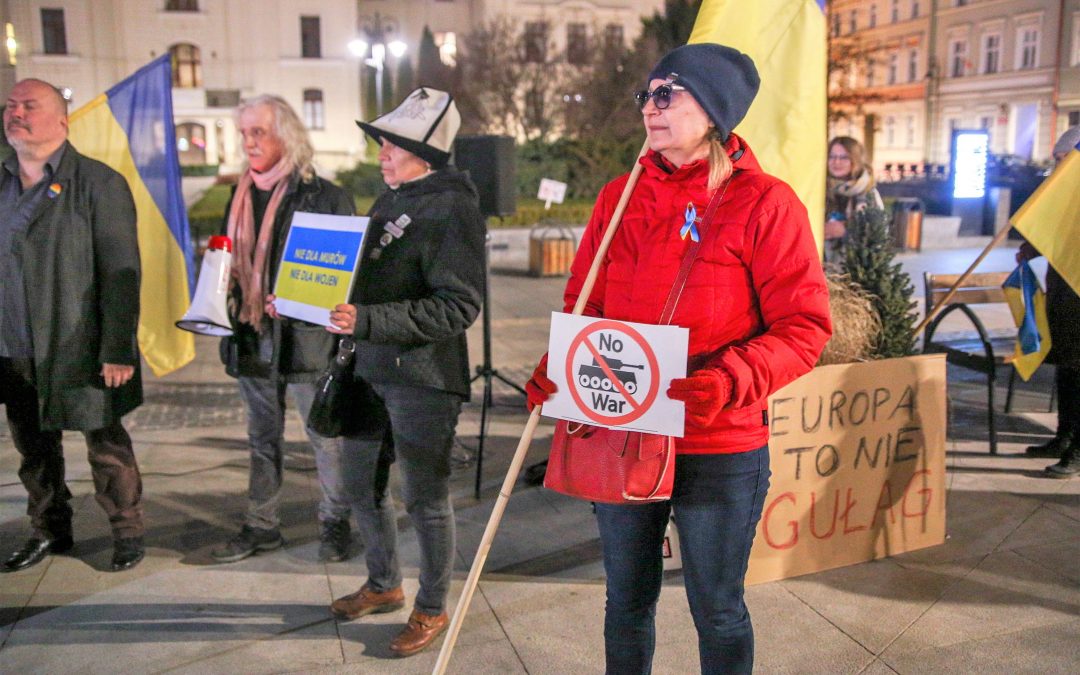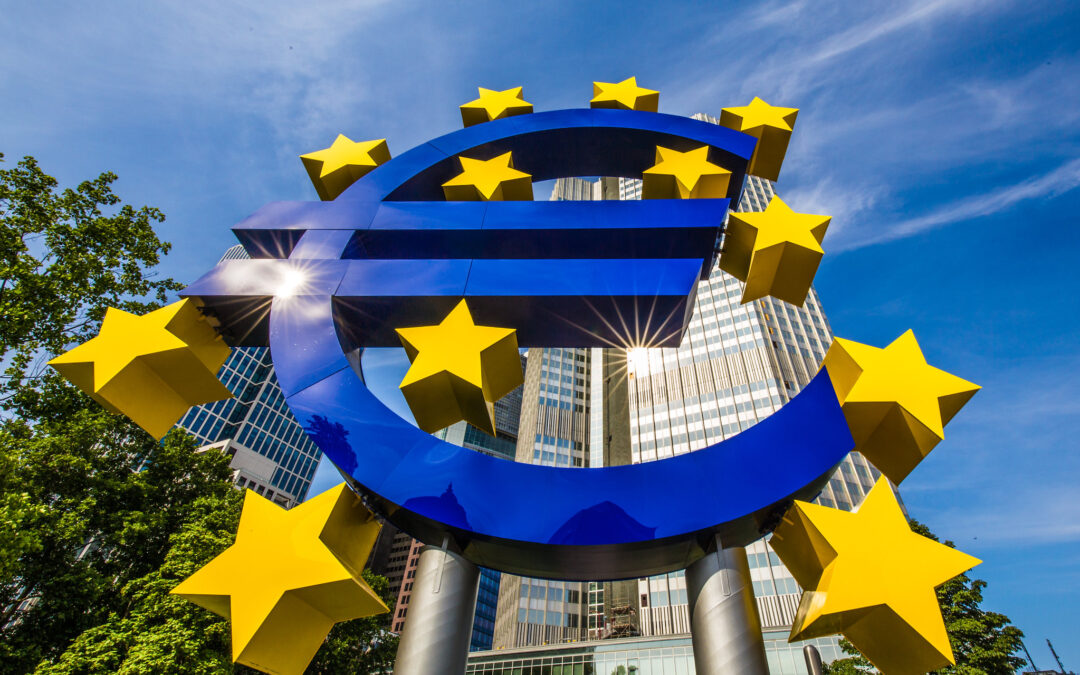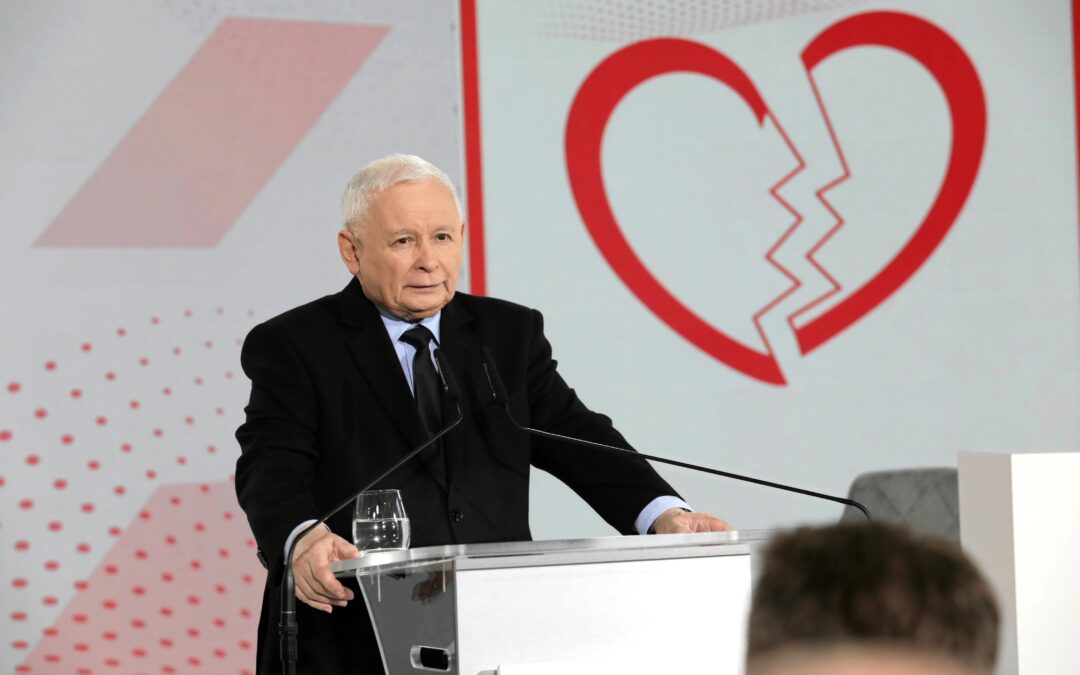By Roman Broszkowski
Days after Russian tanks rolled into Ukraine, Together (Razem), Poland’s democratic socialist party, announced that it would cease cooperation with two large international left-wing organizations, DiEM25 and the Progressive International.
While unexpected, Together’s separation is just one of the latest events in a long-simmering rift between Western and Eastern European leftists that is now bubbling to the surface. Publicising that divide may have strengthened many Eastern European left-wing parties.
Due to @ProgIntl and @DiEM_25's failure to explicitly condemn Russian imperialism and support Ukrainian sovereignty, Razem's National Council has decided to end our partnerships with the two organizations effective yesterday.https://t.co/sZsbTx1vGK
— Razem (@partiarazem) March 1, 2022
Forced to draw a hard policy line on support for Ukraine, the regional left has stepped out of the shadows of their Western comrades, consolidated their political positions, and sparked a significant transformation in how leftists perceive themselves across the region.
How we got here
For many Western left-wing intellectuals – Chomsky, Varoufakis, Mazzucato – the responsibility for the war in Ukraine lies squarely with NATO. By expanding eastward, NATO contradicted what they say was a promise to Russia not to admit new members.
Chomsky providing some crucially important context missing in Ukraine-Russia coverage in Western media: "Russia is surrounded by US offensive weapons…no Russian leader, no matter who it is, could tolerate Ukraine joining a hostile military alliance." pic.twitter.com/fjp7wvLzrB
— ☀️👀 (@zei_squirrel) February 20, 2022
Building on this argument, Erik Edman, political director for DiEM25, contends that the rift with his Eastern European counterparts stems from a focus on national sovereignty and a reluctance to criticise NATO imperialism.
“We have now this situation of being confronted by comrades who were adamantly against a number of invasions and with whom we were out in the streets demonstrating for decades,” says Edman, adding:
However, now that we are being faced with another imperialist sort of threat from the side of Russia, they are not as prepared to adamantly oppose both that imperialism and imperialism of NATO. And I wouldn’t call it hypocrisy, but there is a different approach when it comes to Ukraine from some of our comrades in the Eastern European left that has made it a bit difficult to align on this topic.
But Eastern Europeans see the situation differently. They say that the fissure stems from years of condescending behaviour by Western and English-speaking left-wingers that were no longer tolerable once bombs started falling.
Kinga Stanczuk – a Polish expert on European political history and former Together board member – relayed one emblematic experience that occurred at a conference in Copenhagen:
The panellists from [the German party] Die Linke (The Left)…were delivering their usual sort of anti-EU speeches with very strong language being used, arguing…that the new European countries and the new European societies do not understand just how toxic the European Union is. And at some point, I just sort of intervene[d] from the audience trying to explain our position…And I remember, the speaker from Die Linke, essentially, in answering me said, “This is a prime example of why our Eastern European friends need to be taught democracy.”
Some activists have drawn on previous criticisms of the left’s attitude towards the Syrian civil war as a tool for explaining their frustration with their Western comrades. Using a framework laid out in “The Anti-Imperialism of Idiots” – an article by British-Syrian activist Laila Al-Shami – they argue that these put-downs reflect how many Westerners have failed to respond to international crises by inappropriately adopting a US-versus-the-world binary.
“[The Anti-imperialism of Idiots] is a refusal to step outside those binaries, and see[ing] things in just these very black and white terms,” Al-Shami explained, continuing:
And I think a big part of that is that people already have their preconceived ideologies…They [want] realities on the ground to fit [those] preconceived ideologies. And that obviously [leaves] the left completely impotent to respond in any meaningful way in – not just in Syria – but in lots of situations around the world. And we’re now seeing that play out in Ukraine as well.”
It was the reluctance of multiple leading Western leftists to unequivocally denounce Russia’s invasion, in addition to this pattern, that was the last straw for many.
“What do you say to these people, to women and children, who are hiding in cellars or basements,” says Andrius Bielskis, a Lithuanian political philosopher and director of Demos, an anti-capitalist NGO. “The Western international left is in favour of going and waving with the white flag and shouting ‘Peace! De-escalate, De-escalate!’ I’m sorry, but what the hell does it mean?”
Changing perceptions
Russia’s invasion and the disconnect between what the Western left was saying forced a reckoning for Eastern leftists.
Three months later, how the Eastern European left-wing sees itself has undergone a dramatic metamorphosis. For the first time, many in the region understand themselves as stemming from a distinct socio-political history that deserves to be understood by the broader international left.
“I used to insist and say that we [in Poland] are Central Europe…now [we] understand that [we] are Eastern European…We’re from the East because there is a certain experience that actually completely separates us from the…West,” says Jan Smoleński, a lecturer at the University of Warsaw and a PhD candidate at the New School for Social Research who recently published an article titled “The American Pundits Who Can’t Resist ‘Westsplaining’ Ukraine”.
"In the westsplaining framework, the concerns of Russia are recognized but those of Eastern Europe are not." A very good article about one dominant Western discourse of the last days about the war in Ukraine and esp. the NATO's role. https://t.co/Sv14LK3qBA
— Eszter Kováts (@EszterKovats) March 5, 2022
Others have started to affirm that it is past time for the West to learn from those in the east.
“[The] takeaway point is that…here [the] East European left is right,” Bielskis said. “And [the] West European left needs to understand because it is a serious matter…Putin’s regime is a fascist regime.”
But the major throughline has simply been that the Eastern left now represents a political force of its own. For decades, leftists in post-Soviet states looked towards more established Western partners as something to copy. No more, says Stanczuk.
“[The] Eastern European left is currently sort of growing up,” she says. “I think there is a sense of having to face it alone intellectually. I would say this is the beginning of some kind of process rather than the end.”
Where will the Polish left go from here
For Together, solidarity is the only way to go forward. And the changes that the Polish and Eastern European left have experienced are shaping the party’s international outlook.
“We consolidated even more our anti-imperialist stance,” says Zofia Malisz, a member of Together’s international office. “We have become even more committed to fighting imperialisms…protecting the sovereignty of states, and the rights of people to determine their fates even more than we used to.”
Niech żyje wolna Ukraina!
Wieczna hańba rosyjskim agresorom! #StandWithUkraine 🇺🇦❤️🇵🇱❤️🇪🇺 pic.twitter.com/yXmgWoEfGS— Razem (@partiarazem) February 24, 2022
Malisz argues that since the acknowledgement of the East/West split, Together has charted a noticeably different path from many in the Western left. She points out that the party has worked closely with Ukrainian activists and fought to centre their needs in the types of policies Together has been pushing.
“Our cooperation with [Ukrainian organisers] is so deep. We are in daily contact…We listen to what they need,” Malisz explains. “Our approach – and this is different from the Western left – is to listen to Ukrainians.”
Positioning itself as a mature parliamentary party representing a distinct political tradition with unique geopolitical expertise, Together now could seek to help other regional parties build their power as well.
“We’re committed now to working with parties, in general, inspiring the movement in our region because it’s something concrete – an added value that we can add…We want to be part of building left movements in Eastern Europe,” says Malisz.
Several of these organizations have already signed Together’s open letter supporting European military, financial, and humanitarian aid for Ukraine. Others have joined the party in lobbying the US, UK, and European Parliament to support eliminating Ukraine’s debt. In the few months since it split with PI and DiEM25, Together has developed some weight to throw around.
Do naszej inicjatywy solidarności europejskiej lewicy z Ukrainą przystępuje duńska @Enhedslisten!
Przedstawiciele i przedstawicielki 🇩🇰 dołączają tym samym do progresywnych ruchów z 🇺🇦, 🇵🇱, 🇨🇿, 🇷🇴, 🇫🇮 i 🇱🇹!https://t.co/pgpc4rSkIA— Razem (@partiarazem) April 11, 2022
“It’s not that we are just distancing ourselves [from PI and DiEM25]…we are also building something up,” Malisz said. “[Together is] a very experienced movement…that is inspiring also to a lot of budding movements in eastern Europe, not only [in] Ukraine, but also in our neighbourhood like the Czech Republic, Romania, and the Baltics.”
Together plans to continue focusing on defence policy as a critical part of their ideological platform and is pushing for more regional cooperation among frontline nations such as Poland, Finland, and the Baltic States. For Together, their electoral success and the Russian invasion mean that their policies must be rooted in the realities facing their region.
“As a parliamentary party, which has some responsibility for the state right now — not just [as] a voice on the general left — we have to consider such immediate security concerns of our country and our region,” Malisz explained. “The Polish left is definitely trying to figure out mid-term solutions to defence and security. We have been discussing lately all sorts of architectures on the European level.”
Yet while the party is mulling long-term plans such as reforming the EU’s defence policy, Together’s immediate push for regional strength could be the most impactful of all.
Poland’s left-wing is flexing its muscles for the first time on the international stage. By building power specifically in Eastern Europe, Together and their allies are pushing the European fulcrum away from Western Europe and towards the states long considered to be on the European Union’s periphery.
It is possible that by breaking with their Western counterparts, the Polish and Eastern European left have started the process of transforming the EU from an organisation based around Western Europe to one that is more equally distributed among the regions that make up the continent.
Regardless of the end result, what is apparent is that the Russian invasion has marked a decisive turning point in the history of the European left.
Main image credit: Grazyna Marks / Agencja Wyborcza.pl




















